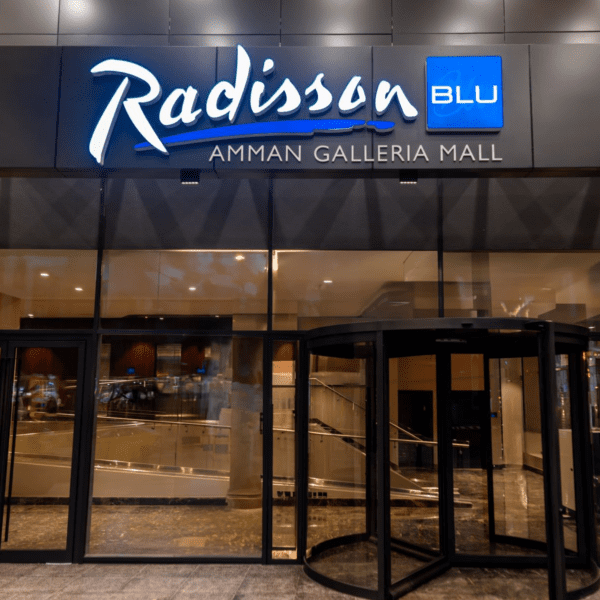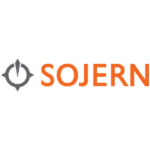 Reducing your costs is probably at the forefront of your mind right now following COVID-19 and the drastic reduction in guest numbers over the last couple of months, with a slow ramp back up to 2019 levels expected to take a number of years.
Reducing your costs is probably at the forefront of your mind right now following COVID-19 and the drastic reduction in guest numbers over the last couple of months, with a slow ramp back up to 2019 levels expected to take a number of years.
Coronavirus has changed every business in the world, but it has hit hospitality especially hard. Hoteliers around the world are feeling the financial cost of the pandemic and are looking to find ways of reducing costs where they can.
We’ve produced an accompanying 8-Step Checklist to help you reduce costs in IT, but here are the primary areas you’ll need to address:
Internet consolidation
Many hotels have multiple internet providers for different devices and consolidating their Internet expenses is one of the first major cost reductions that we can explore.
For example, you might have engaged with a television service provider who insisted on a dedicated internet connection. Later, your telephone provider may have similarly put in a dedicated line for voice communications. Your hotel brand may also have insisted on their own dedicated Internet connection to their central infrastructure for PMS access as part of your brand standard requirements.
Most brands have now recognised and accept that you can use VPN technology to securely connect to their infrastructure and Internet lines are now sufficiently large enough to allow you to consolidate all Internet services down to a single line, with virtual networks for the various services such as TV, communications, Guest WiFi etc.
By reducing your number of Internet connections into your hotel, you can vastly reduce your monthly outgoings for effectively no loss of service. With connectivity prices continually falling and bandwidth options continuing to increase, you may find that you can get a much-improved service for a lot less than you were paying previously, resulting in a positive experience for your staff and guests.
The only argument for multiple connectivity options is for resilience, but that only makes sense if the lines come into completely different parts of your hotel from different exchanges and different Internet Service Providers.
Outsourced IT support
Outsourcing your IT support can save your hotel an incredible amount and, in most cases, can improve service delivery through better response and resolution times, as well as improved team satisfaction. Having an in-house team means you have to:
- Ensure they are sufficiently trained
- Make sure they are well managed
- Provide cover for holidays and sick days
- Ensure career progression and growth
- Make equipment purchases and pay for maintenance and upgrades
- Cover PAYE and other payroll expenses.
In contrast, with outsourced IT support, you do not have to worry about any of the above. Instead, you will have a consistent, easily budgeted for service. Furthermore, you will be able to plan for flexible IT support as your business changes, scaling down while demand is lower and then scaling up as needed.
Second to cost is experience and skill. When you have an IT issue, you want to ensure that your IT support team are able to resolve the issue as quickly and efficiently as possible.
Outsourcing your IT allows you to take advantage of the greater knowledge base that comes with a larger team. An experienced hotel-focussed IT company will have dealt with a wide range of issues just like yours, from PMS and interface issues all the way through to server, backup, guest WiFi issues, as well as third party vendor management. Consequently, they will be able to pinpoint issues faster and solve them quicker.
Additionally, IT companies have access to continuous training and development which an in-house team wouldn’t have. This means they are constantly developing skills and building experience, being exposed to new hotel technology, all while following industry accepted best-practise.
Compliance
PCI compliance
Any time a customer makes a payment using a credit or debit card, the Payment Card Industry Data Security Standard (PCI DSS) applies. The PCI DSS is a regulation that was established by the Payment Card Industry Security Standards Council (PCI SSC) as a way of securing payments and protecting merchants and brands from fraud.
If you fail to comply with PCI DSS, your bank charges you an additional small percentage fee for every transaction through your payment processor, with the exact percentage varying between providers. On the face of it, that doesn’t seem to be a massive cost, but with the scale of your operations and given the number of transactions your guests make, that non-compliance fee can add up very quickly.
Let’s take a simple example. If you had 200 rooms and you charged £100 per night for each, you will be taking in £20,000 per night. If you did that every night, your turnover would be £7.3m for the year, excluding other revenue such as your F&B. If you are charged an extra 0.1% on that number, you are potentially paying over £73,000 in extra ‘hidden’ fees. That is £73,000 is a substantial saving that could easily be put to better use elsewhere.
PCI DSS applies to any organisation that stores, processes or transmits cardholder data. Even though the PCI SSC defines multiple levels of merchants and service providers, the requirements remain the same for all merchants and service providers, across any industry sector.
Equally, if your data is compromised and the card issuer requires you to certify your compliance using a qualified security assessor (QSA), this could cost up to £850 per day and usually takes up to two weeks to complete. PCI compliance fines can be avoided if the correct procedures are followed from the outset.
GDPR compliance
Keeping your guest and stakeholder data safe is more important than ever before. As a hotel, you are required to hold a lot of valuable personal data and that means that you are an obvious target for cyber-attack.
If you are not yet compliant, or if you don’t have effective cyber-security solutions in place, now is the perfect time to get your hotel systems and processes in order so that you can protect yourself from being breached and from the resulting fine from the ICO. Demonstrating your efforts towards GDPR compliance will significantly reduce your costs should the worst even happen and your guest’s data is compromised.
Payments
PDQ rental review
Process Data Quickly (PDQ) machines are payment processing machines that you use for accepting debit or credit card payments. Due to the coronavirus pandemic, contactless payment with card machines are essential. However, with a reduced number of guests and staff, you may want to consider reviewing your current PDQ rates and the number of terminals you really need. A single unused terminal may not be a huge expense, but if you have multiple unused terminals, the rental numbers swiftly add up, resulting in a bigger expense than once thought.
Leasing a single PDQ machine can cost between £20 – £30 per month. Let’s say you have 10 unused PDQ machines, that’s £300 a month or £3,600 a year. You will essentially be paying £3,600 for a service that is not providing you with any returns and adding a negative result to your balance sheet.
When your transaction numbers increase, you can then warrant hiring additional PDQ’s so as not to interfere with your guest experience.
Telephones
Telephone lne rationalisation
You may have put off auditing your telephone line infrastructure for a long time. It is a hassle and there is always a risk of ceasing an important line. You often need PSTN lines for your lifts, your alarms and historically, faxes and the like.
Now is the perfect time to take a moment to rationalise your line estate and take the time to work out exactly which lines do what.
It would make sense to work with an organisation who can safely reduce your line spend through a well thought out rationalisation process. An experienced team should look at your estate and will be able to put a number of different services on a single line, reducing your rental costs.
Call rate review
In line with rationalising your line estate, we know of many hotels that have never had their call rates reviewed. Following the opening up of the telephone market and the introduction of new IP based calling, call rates have and continue to reduce all the time, with local and national calls now often being charged for less than 1p per minute within the UK.
Many telecom providers have bills that are not very transparent, but it is often worth spending the time to work out your rates and then negotiate them downwards. As a hotel, where everything is done at scale, there are often substantial cost reductions and savings to be made.
Removal of room telephones
In the not too distant past, having guests make phone calls was a good revenue stream for your hotel. Unless you are located in an isolated area without mobile coverage, you will most likely have found that most of your guests now rely on their own mobile phones, with room phones relegated to room service orders and reception queries.
Considering the Coronavirus pandemic, many are rightly asking whether it is really necessary to have a room telephone at all? One of the many things COVID-19 has highlighted all over the world is hygiene and high-impact touchpoint items like door knobs, communal tablets, telephones etc. Room telephones will most likely be one of those communal items that guests will avoid, especially in the near term.
Hoteliers around the world are beginning to adopt a new way of allowing guests to communicate with reception and that’s through chat apps like WhatsApp. With chat apps, guests can use their personal device to communicate with your team, making the room telephone obsolete and an additional and unnecessary expense to clean and maintain for your hotel. With the simple use of a QR code, you can invite your guests to communicate with your team via WhatsApp using a personal device that they trust.
The reduction in costs from removing room telephones comes from a number of areas:
- The chance to reduce the number of available telephones lines based on an historic demand number, which as described above will save you monthly rental fees.
- The ability to remove your TMS (Telephone Management System) and related license and maintenance costs. The TMS is specifically used to bill guests for the use of the room telephone and if you no longer offer room phones, you no longer need to have that facility.
- Without the TMS, you will be able to remove some of the systems and infrastructure needed to host it, reducing interfacing issues, support costs and network complexity.
- In time, and without the need to worry about room telephones, your hotel can more easily adopt a smaller, more functional and cheaper VoIP telephone system, resulting in further savings and efficiencies.
If your telephone system is due a refresh, now might be a perfect opportunity to try out chat apps and remove the costs of having room telephones and a TMS.
You may also be able to get an additional return by selling your old handsets to companies that buy used telephones. Telephones are expensive, but thankfully they retain much of their value over time. What you will get from your handsets will depend on their condition and the market demand for them as refurbished phones, but it is something to bear in mind.
Telephone line SIP migration
SIP stands for Session Initiation Protocol and its core function is to carry voice and video calls over the Internet. If you still rely on ISDN for your voice connectivity, you can reduce your costs very quickly, with your only concerns being your contractual obligation with your line provider, your telephone system capabilities and your available bandwidth to run SIP.
These are the main differences of ISDN and SIP:
| Cost | Available Channels | Extension numbers | ||
| ISDN | ISDN2 | £26 per month per channel | 2 | 9 |
| ISDN30e | £23.80 per month per channel | 8+ | Unlimited | |
| SIP | £5 – £15 cost per channel | Unlimited | Unlimited | |
As you can see from the table, the cost difference between ISDN and SIP is significant. With SIP, you can cheaply ensure that you have the right number of channels available for the number of simultaneous calls that you expect to make. The only requirement is connectivity that is capable of carrying voice traffic, which is something that most hotels have no problem with as you typically invest in high speed internet access (HSIA).
SIP also offers free inter-office communication, meaning that if you manage multiple hotel sites, your team can call each other free of charge, providing you with extra cost reductions.
The cost of SIP is not the only benefit it provides. It also provides you with extra flexibility, giving you the opportunity to easily scale when you need to and easily route calls to those working remotely. You could, for example, start with a handful of SIP channels now that demand for hotels is low and then ramp up when demand returns.
By adopting SIP and unifying your network, you can then ask your IT support team to support your communications and potentially remove maintenance costs from your operations.
Additionally, Openreach has stated that they will stop supporting ISDN in 2025, so by moving now you will be able to enjoy a few years of extra saving.
About the author
 Sagi Saltoun is the CEO & founder of Cardonet, a hospitality focussed IT Services business formed in 1999 that offers true 24×7 service from operating bases in the UK, Europe and US. Cardonet currently provide IT support services to brands like Harbour Hotels, L’Oscar Hotels, Graduate Hotels, Splendid Hospitality Group and many more.
Sagi Saltoun is the CEO & founder of Cardonet, a hospitality focussed IT Services business formed in 1999 that offers true 24×7 service from operating bases in the UK, Europe and US. Cardonet currently provide IT support services to brands like Harbour Hotels, L’Oscar Hotels, Graduate Hotels, Splendid Hospitality Group and many more.



















